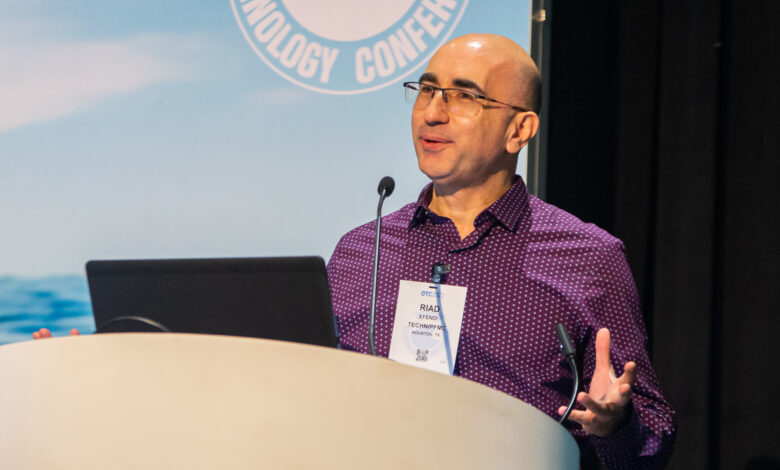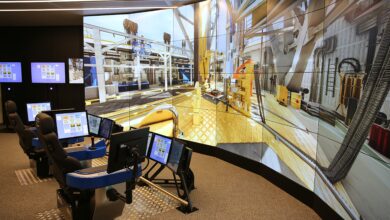Corporate culture shifts can help industry retain Gen-Z workers
Companies should provide clear promotion tracks, outlets for young talent to voice concerns

By Jessica Whiteside, Contributor
When UN Secretary-General António Guterres addressed the Class of ’22 at New Jersey’s Seton Hall University this spring, he called investing in fossil fuels “a dead end – economically and environmentally.” The students hearing that message belong to Generation Z, a demographic cohort born roughly between 1995 and 2010.
In Deloitte’s 2022 Gen Z and Millennial Survey, released in May, the energy/mining sector ranked within the top three industries that Gen Z respondents were eager to leave within the next two years.
These are just two examples of the challenges facing the oil and gas industry as it tries to recruit new talent. And it means that responding to the Gen-Zer challenge is “not just essential – it’s existential,” said Riad Efendi, Corporate/Global HSE Manager at TechnipFMC, during a presentation at this year’s OTC in Houston.
The biggest rivals for young engineers lie outside the oil and gas sector, among the likes of Apple, Tesla, Pfizer and thousands of startups, Mr Efendi said. Oil and gas has become less attractive because of stigmatization around CO2 emissions and oil spills, he said, and because the sector is no longer seen as offering “stable and relatively high compensation.”
Another recent factor, he added, is that, compared with tech companies, many companies in oil and gas have not given as much focus to employees’ work-life balance, focusing instead on getting employees back to the office.
There is still time to turn things around, he said, “but we need to act fast.”
Understanding Gen Z traits
While the youngest Gen-Zers are still preteens, the oldest have already followed Millennials into the workforce. In fact, Mr Efendi said it’s predicted that Gen-Zers will account for up to 27% of the oil and gas workforce by 2025. He listed three key generational characteristics identified through cohort analysis that – while not representative of every Gen-Zer – could help oil and gas companies develop strategies to engage more effectively with their Gen Z workforce.
First, Gen-Zers are very entrepreneurial. They may prefer to start their own businesses or establish a side gig in addition to their corporate work. Mandatory in-office presence and other corporate restrictions could turn Gen-Zers away from oil and gas to other industries that appear more “free-spirited,” Mr Efendi said.
Second, Gen-Zers have an affinity for multitasking. They might take on not only the tasks assigned to them but also tasks they assign to themselves, even those not pre-approved by their supervisors. Limiting them only to the duties of a prescribed role could nip a Gen-Zer’s enthusiasm in the bud, Mr Efendi said.
Third, Gen-Zers thrive on interactivity with other people, even if that subverts the traditional corporate hierarchy. “They would want to share their ideas with executives, sometimes maybe even over the heads of their direct supervisors, if they believe that those are high-level ideas,” Mr Efendi said.
Shifting the organizational mindset
To help the industry engage better with Gen-Zers, he proposed several strategies related to corporate culture and HR. While these strategies would not require significant capital or operational expenditures to execute, they do require change in the area most resistant to change – the human mind, he said.
In terms of corporate culture, it is imperative that companies encourage two-directional communication. Mr Efendi noted that such communication is already a feature of occupational safety programs, with ISO 45001 requiring not only consultation of workers but their participation in decision-making processes. Expanding that approach beyond safety to the broader corporate culture could mean, for instance, not just feeding employees information through memos but providing a forum that encourages them to voice concerns without fear. This would be “pretty much the same, for example, as we do for stop work authority,” Mr Efendi said.
In terms of HR, he recommended the establishment of a talent pool with a clear and thoughtful promotion track. Existing HR processes could be tweaked to ensure greater focus on employees’ skills and potential.
A company with an annual recognition or awards program, for example, could ensure that, once the ceremony is over, they continue to track the career path of the individuals recognized. Performance evaluations – traditionally used to assess bonuses or salary adjustments – could also be used to analyze talent pool turnover rates on a company or business unit level. When a member of this pool leaves the company, it should be considered an incident requiring root cause analysis and corrective actions, Mr Efendi said.
“There is no need to wait until Gen-Zers acquire a critical mass within the company. All these steps can be done right now.” DC




